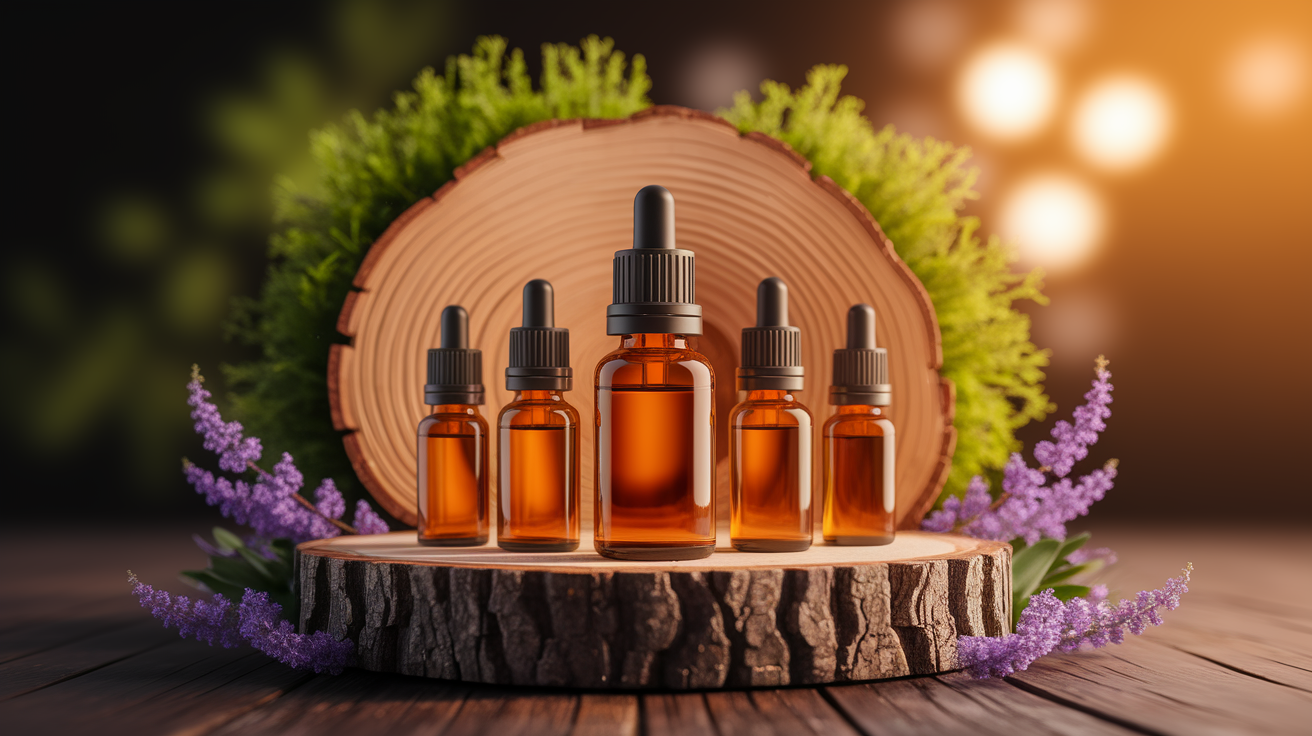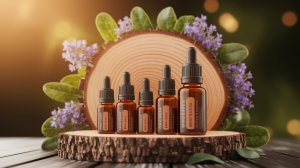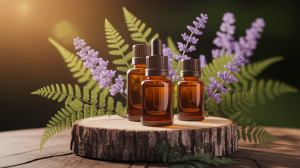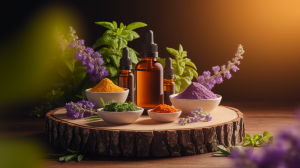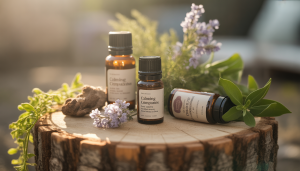Introduction – Meet Niaouli, the Gentler Tea Tree Ally
There’s something fascinating about meeting a plant’s “cousin” and discovering it has its own personality. Niaouli essential oil, pressed from the leaves and twigs of the Melaleuca quinquenervia tree, feels exactly like that—a close relative of Australia’s famous Tea Tree, but softer around the edges. The first time I caught its scent, I expected an intense medicinal punch, but instead, there was this fresh, clear, almost eucalyptus-like aroma that carried a quiet strength. It’s like the friend who knows exactly how to help without making a big fuss—versatile, gentle, yet incredibly powerful where it counts.

What Makes Niaouli Unique? Chemical Composition at a Glance
Niaouli’s uniqueness lies in the natural chemistry flowing through its steam-distilled oil. It owes much of its character to high amounts of 1,8-cineole, also called eucalyptol, which explains its amazing decongestant and respiratory-clearing qualities. You’ll also find linalool, limonene, nerolidol, alpha-terpineol, and sometimes a touch of viridiflorol—that’s the secret to its warm depth. This combination brings antiseptic, anti-inflammatory, antiviral, and expectorant properties into one bottle, making it a natural multitasker that feels just as at home in your skincare routine as in a steamy bowl for inhalation.

Health Benefits Compared to Tea Tree Oil
Put Niaouli and Tea Tree side by side, and you’ll see their family resemblance—but they shine in different ways. Both have rock-solid antimicrobial and antiseptic properties, but Niaouli is the milder one on skin, especially for those with sensitivity. Its higher cineole levels make it an even stronger player when the chest feels tight or the sinuses are stuffy. In the world of natural remedies, it’s the go-to for respiratory support without giving up the cleansing and skin-healing power Tea Tree is known for. Think of it as the gentler touch with the same effectiveness—perfect for delicate complexions or for those who find Tea Tree just a little too punchy.

Practical Uses: From Skin to Sinuses
Picture a bottle that can help soothe a scratch, calm an acne flare-up, ease the sting of an insect bite, and clear a blocked nose—it sounds like a tall tale, but this is Niaouli’s daily reality. In wound care, its natural antiseptic strength makes it ideal for cleaning minor cuts and scrapes, while its skin-healing properties encourage them to close swiftly and cleanly. For respiratory issues, a steamy bowl with just a drop or two of the oil can help loosen stubborn mucus and make breathing less of a chore. I’ve also used it in a chest rub blend when those wintry coughs refuse to leave. And if muscles ache after a workout? Massaging a diluted mix over the sore areas often brings noticeable relief.

Safety, Dilution, and Best Practices
As with all essential oils, respect is key. Niaouli might be gentler than Tea Tree, but it’s still potent and should be diluted before touching skin. For facial applications, I keep it to 0.5–1% dilution—just a drop in a teaspoon of carrier oil. For the body, 2–3% dilution works well. Avoid applying near the eyes or mucous membranes, and if you’re dealing with asthma or chronic respiratory conditions, introduce it gradually to ensure comfort. And remember: more isn’t better. A single drop can be plenty for most uses, thanks to its concentrated nature.

Enhancing Your Aroma Routine with Niaouli
In my diffuser, Niaouli stands out as a “clarity” oil. When I pair it with lemon, cypress, or rosemary, the scent lifts the mental fog like sunlight breaking through clouds. For evening relaxation, I’ll soften its crisp edge with lavender—and suddenly it’s less of a crisp breeze and more of a warm hug. Aromatherapists have long valued it for promoting focus and calm together, which is a rare and wonderful combination. Blended into a bath salt, it can ease the mind while opening the chest, making it perfect for seasonal sniffles or just a much-needed reset.
Conclusion – Breathing Easy with Niaouli’s Gentle Power
Niaouli essential oil is that rare find that manages to be both strong and tender, making it a worthy companion in any natural health toolkit. It offers the cleansing, protective qualities you’d expect from a Tea Tree relative but steps in with extra kindness for the skin and unrivaled support for the breath. In a world where “gentle” is often mistaken for “weak,” Niaouli quietly proves the opposite—sometimes the softer approach is the most powerful of all.








